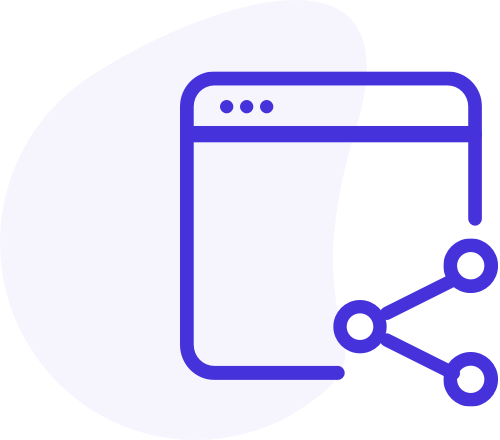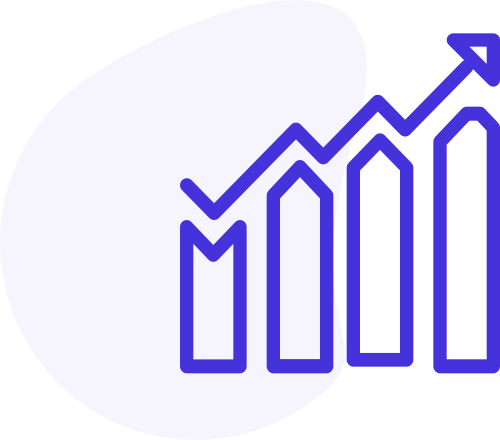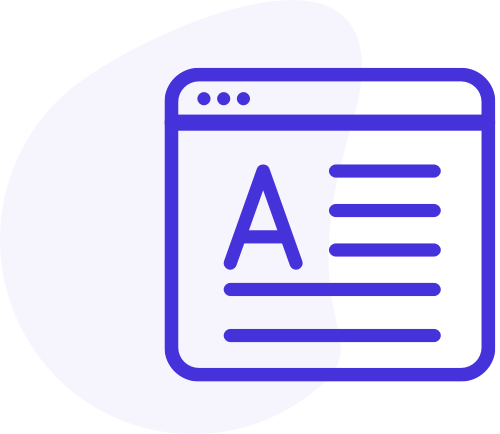In sales, there are various types of leads, each representing a potential customer at different stages of the buying process.
At BitWide, our outbound sales experts understand the difference, and more importantly, we know how to nurture leads from one stage to the next, bringing them closer to you, the client, in order to help you make the close.
If you’re curious about how to create a lead generation campaign successfully, it all starts with lead qualification.
We target only the up-market leads that have a problem your product can actually solve. Our team focuses on prospect pain points and your unique value proposition in order to optimize the sales process, converting leads into customers.
By focusing on prospects with the highest potential and allocating their time accordingly, our sales teams bring you calls with the highest likelihood of closing. Whether it’s high-value B2B clients or industry-specific prospects, our lead generation strategies are designed to maximize conversions.
For businesses in highly competitive markets—such as legal services—targeting high-intent leads through law firm PPC campaigns can significantly improve the quality of inbound prospects. Pay-per-click advertising allows law firms to attract potential clients actively searching for legal assistance, turning website visitors into qualified leads.
Today, we’re sharing the 6 most common types of leads, and how we get them to the next stage.
1. Cold Leads
These leads are at the very beginning of the sales funnel and have had no prior interaction with your company. They have expressed no interest in your product or service. Our sales representatives initiate contact and build awareness from scratch. A cold lead requires the most time and effort to kindle into warmth, and this is where a lot of initial effort is spent.
2. Warm Leads
Warm leads have shown some level of interest or engagement with your product or service but haven’t reached the point of making a purchasing decision yet. Warm leads have interacted with your business in some way. This interaction could include actions like signing up for a newsletter, attending a webinar, following your company on social media, or downloading resources from your website.
These leads are further along in the lead generation funnel than cold leads, but they still require nurturing and further interaction to move them closer to a buying decision. Routine follow-ups and a reminder of the client UVP go a long way to nudging this type of lead down the funnel.
3. Hot Leads
Hot leads are much further along in the sales process and are close to making a purchasing decision. They require less nurturing and are ready for direct sales engagement.
A hot lead is actively seeking information or assistance to make a decision. They might have requested a product demo, pricing information, a quote, or other specific details related to your offering.
Hot leads typically have a sense of urgency. They may have a pressing need for your product or service or a specific timeframe for making a decision.
Once a hot lead expresses interest in speaking with a sales representative, and the call is booked, this lead becomes qualified.
4. Marketing Qualified Leads (MQLs)
While not yet fully qualified for sales, this type of lead typically requests a sales call, but might be gun-shy when it comes to agreeing to a time on a calendar.
MQLs are often generated through marketing efforts or outsourced lead generation companies and they typically match the ideal customer profile established by your company. This includes factors such as company size, industry, job title, and geographic location.
MQLs exhibit behaviors that indicate a readiness to move through the sales funnel, but may still require some gentle encouragement. BitWide’s outbound lead generation services include following up with MQLs to ensure they book that ever-important call with you or your internal sales associate. A reminder of interest expressed on past calls can do wonders for bringing the lead back to the playing field.
When they finally agree to booking a call, the lead is typically handed off to the sales team for direct engagement, as they have progressed to a stage where a sales conversation is more appropriate.
5. Information Qualified Leads (IQL)
IQLs typically meet certain criteria and have provided enough information for the sales team to determine that they are a potential prospect worth pursuing. This type of lead is often somewhere between a Marketing Qualified Lead (MQL) and a Sales Qualified Lead (SQL) in terms of readiness to engage with sales.
IQLs are prospects that the sales team can engage with to gather more specific information about their needs, timeline, and budget.
IQLs have provided essential contact details, such as their name, company name, phone number, and email address, allowing for easy and direct communication.
They may have also shared information about their role within the company, industry, company size, or geographic location — key information that helps determine if they fit the ideal customer profile.
The sales team can use this information to tailor their approach and determine if the lead is ready to advance to the next stage in the sales process, becoming an SQL.
6. Sales Qualified Leads (SQLs)
SQLs are the holy grail of sales — leads who have been vetted and qualified by both marketing and sales. They have demonstrated both interest and the ability to make a purchase, and they are ready for a sales representative to engage with them directly to close the deal. This is a critical stage in the sales process, as it typically represents the point where leads go from being potential customers to actual customers.
They will show a high level of engagement and interest in your product or service. They may have requested a demo, a proposal, or specific product information, and they will follow up with specific questions about budget and rollout.
SQLs not only match the ideal customer profile established by your company, but they also feel that you’re a prime candidate to solve their unique pain point.
At BitWide, we specialize in evaluating, nurturing and delivering qualified leads to you so that your internal sales team can do your thing — and close the client.Want to learn more? Check out our case studies to browse some of our past success stories. Turn your prospects into leads and your leads into clients today with BitWide.









